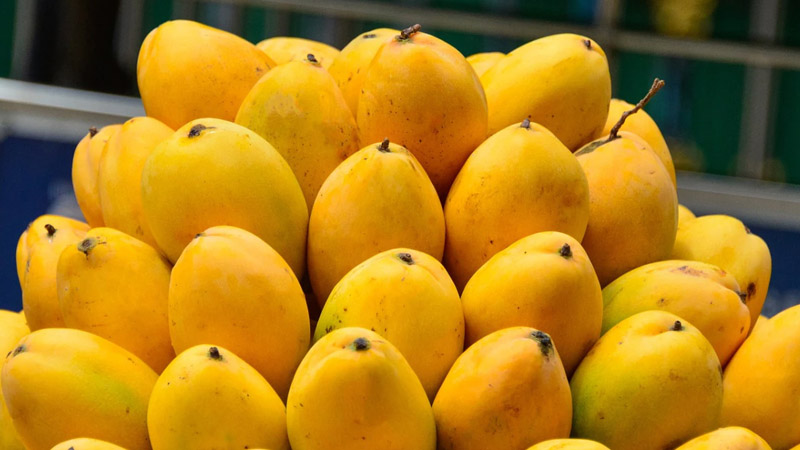5 Potential Side Effects of Overeating Mangoes

(Getty)
Eating mangoes can be a delicious and nutritious choice, as they are full of vitamins, minerals, and antioxidants. However, consuming them in excessive amounts can lead to several side effects. Here are five potential negative consequences of overindulging in mangoes:
Digestive Issues: Mangoes contain a high amount of fiber, and while fiber is beneficial for the digestive system, consuming too much can lead to gastrointestinal problems such as bloating, gas, and constipation. For individuals with sensitive stomachs, this can be particularly uncomfortable.
High Sugar Content: Mangoes are naturally high in sugar. Eating too many mangoes can lead to an excessive intake of sugar, which is problematic for blood sugar control. This is especially important for people with diabetes or those trying to manage their blood sugar levels, as it can result in spikes and crashes.
Weight Gain: Due to their high sugar and calorie content, excessive consumption of mangoes can contribute to weight gain. This is particularly significant for those who are watching their weight or are on calorie-restricted diets.
Allergic Reactions: Some people may be allergic to mangoes, particularly those who are sensitive to poison ivy. Mango peel contains urushiol, the same compound found in poison ivy that can trigger allergic reactions. Symptoms can include itching, swelling, and blisters.
Nutrient Imbalance: While mangoes offer a variety of nutrients, eating them in excess can lead to an imbalance in nutrient intake. Overconsumption can especially impact the levels of vitamin C and beta-carotene, leading to symptoms like skin discoloration or an increased risk of lung cancer in individuals who smoke or have been exposed to asbestos.
Moderation is key when enjoying mangoes to avoid these potential side effects and to maintain a balanced and healthy diet.


